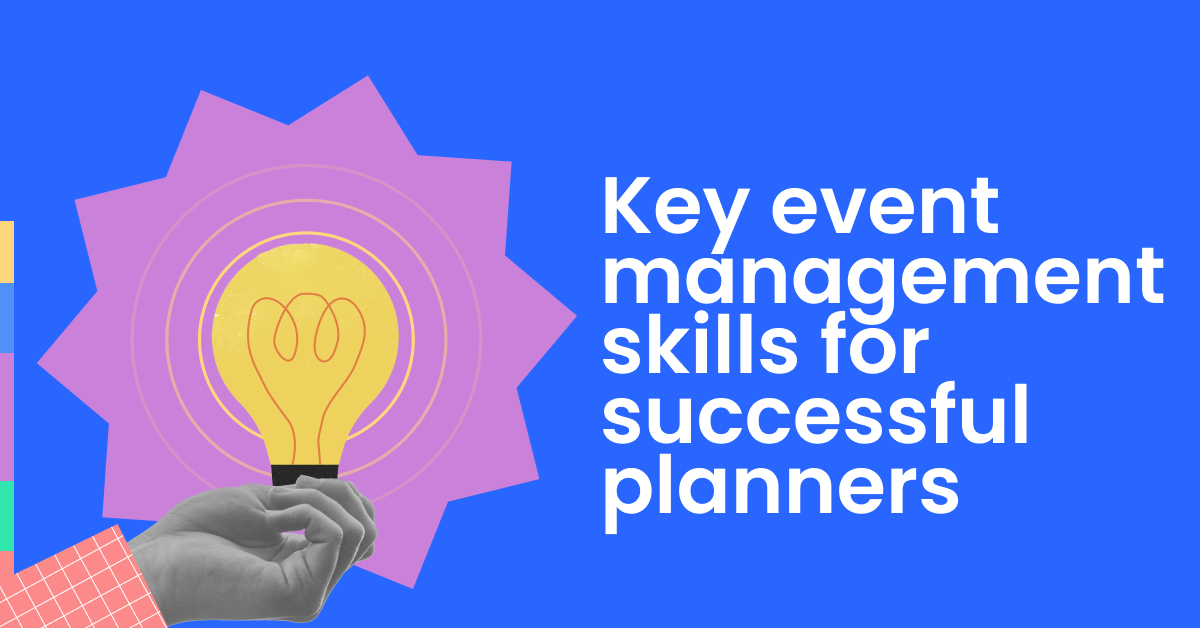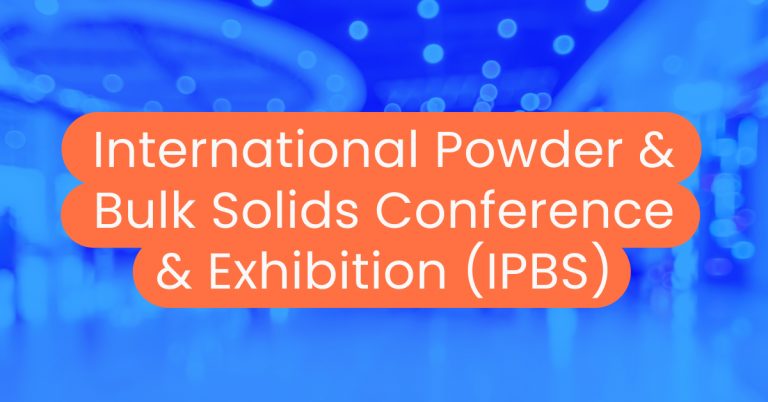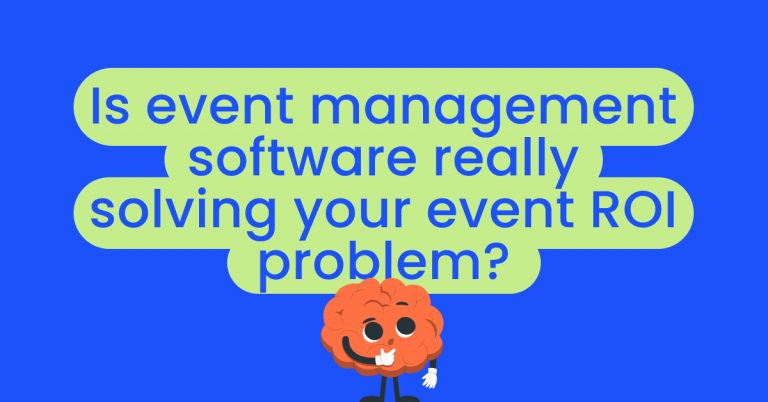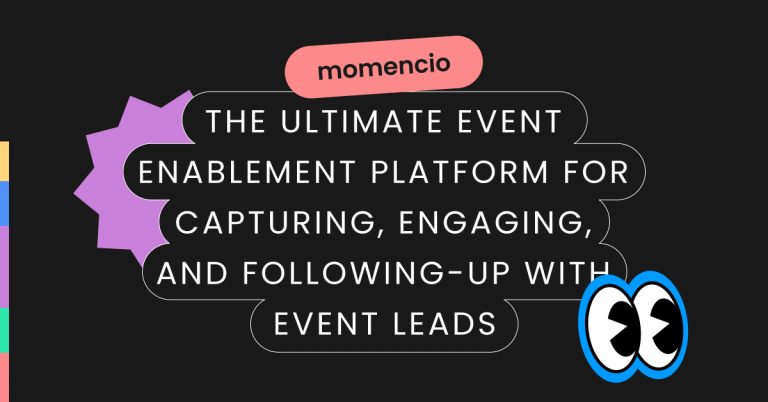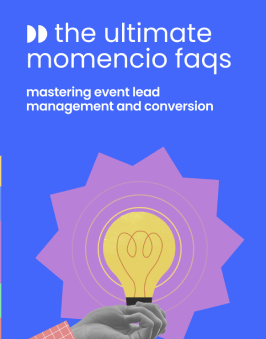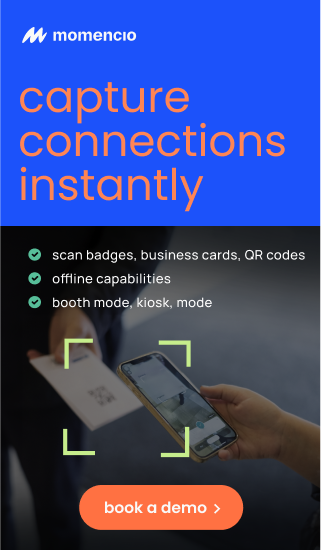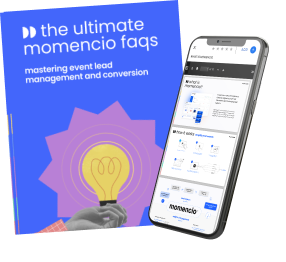Event planning is a dynamic, high-pressure profession that requires a blend of creativity, organization, and leadership. The ability to juggle logistics, manage teams, and ensure a seamless attendee experience is no small feat. In fact, the global events industry is projected to grow to $2.194 billion by 2028, underscoring the increasing demand for skilled professionals.
However, only a fraction of event managers fully capitalize on the potential of their roles. According to a Cvent survey, 60% of planners cite time management as their most significant challenge, followed by communication and technological adoption. These challenges often separate mediocre events from outstanding ones.
This article explores the essential event management skills required to elevate your career as an event planner. From mastering communication and leadership to harnessing the power of technology, you’ll gain actionable insights and practical tips to achieve event planning success. Let’s delve into what makes a great event manager—and how you can become one.
TL;DR: To succeed as an event manager, focus on developing essential skills like leadership, communication, organization, and adaptability. Utilize technology to streamline operations, improve engagement, and enhance ROI. Overcome challenges by adopting professional certifications, leveraging feedback, and maintaining flexibility. By continuously refining these abilities, planners can deliver impactful, memorable events.💡 #Protip: Tools like momencio can help you simplify lead management, track real-time analytics, and create personalized follow-ups, ensuring event success.
Core event management skills for success
Successful event management requires a robust skill set that combines creativity, organization, and problem-solving. Below, we explore the key skills that define exceptional event planners and discuss how they contribute to the success of any event.
1. Leadership and adaptability
Why it matters: Leadership is the backbone of event management. From inspiring a team to making critical decisions under pressure, event planners must exude confidence and resilience. Adaptability ensures they can pivot seamlessly when unexpected challenges arise.
- Example: Imagine a keynote speaker cancels at the last minute. A strong leader quickly devises alternatives, such as moving up another session or hosting a panel discussion.
- Tip: Build leadership skills by volunteering to lead smaller projects and seeking feedback from peers and team members.
2. Communication and collaboration
Why it matters: Event planning involves multiple stakeholders—vendors, clients, team members, and attendees. Effective communication ensures everyone is aligned and informed, while collaboration fosters teamwork.
- Best practices:
- Use clear and concise language in all communications.
- Leverage project management tools for centralized updates.
- Practice active listening during meetings to understand concerns and ideas.
3. Time management and multitasking
Why it matters: Event planning operates on tight deadlines, and tasks can pile up quickly. Planners need to prioritize effectively to ensure everything runs smoothly.
- Pro tip: Use the Eisenhower Matrix to categorize tasks into urgent, important, and non-essential. This method helps focus on what truly matters.
- Example: While managing event setup, time-sensitive tasks like confirming catering should take precedence over minor decor adjustments.
4. Organizational skills
Why it matters: Meticulous organization is critical for tracking every aspect of the event, from venue bookings to attendee lists.
- Strategies for success:
- Create detailed checklists for every event phase, from planning to post-event follow-up.
- Maintain a shared digital calendar to keep the team informed of deadlines and deliverables.
Well-organized events are 2.5 times more likely to achieve stakeholder satisfaction.
5. Technical proficiency
Why it matters: Modern event management relies heavily on technology, from attendee registration software to hybrid event platforms. Planners who embrace technology can enhance efficiency and attendee engagement.
- Must-have tools:
- Event registration software.
- Hybrid event platforms for combining virtual and in-person components.
- Real-time analytics tools like momencio to track engagement and ROI.
The adoption of event management technology improves efficiency by 30%.
The role of technology in modern event management
Technology has become a cornerstone of event management, empowering planners to streamline operations, enhance attendee experiences, and achieve measurable outcomes. Incorporating the right tools into your workflow can make the difference between a good event and an exceptional one.
1. Streamlining operations with event management software
Event management software simplifies the planning process by automating tasks and centralizing workflows. Tools like Eventbrite and Cvent allow planners to manage registrations, send updates, and track attendee data in real time.
- Key benefits:
- Automates repetitive tasks, such as email follow-ups and payment processing.
- Centralizes event details, ensuring all stakeholders have access to critical information.
- Provides real-time updates, reducing the risk of miscommunication.
2. Real-time analytics: Insights for informed decision-making
Data analytics tools are transforming how planners evaluate event performance. Platforms like momencio enable real-time tracking of attendee engagement, helping planners make adjustments during the event and refine strategies post-event.
- Applications:
- Monitor attendance and engagement during sessions to identify popular topics.
- Measure the effectiveness of marketing campaigns by tracking registration conversions.
- Use heat maps to analyze booth traffic at trade shows.
#Protip: Invest in platforms that integrate seamlessly with CRM tools to streamline lead management and nurture strategies.
3. Hybrid event platforms: Bridging in-person and virtual experiences
The rise of hybrid events has created a demand for tools that merge physical and digital components. Platforms like Hopin and Zoom Events enable planners to create cohesive experiences for both in-person attendees and virtual participants.
- Best practices:
- Ensure high-quality audio-visual setups for live-streamed sessions.
- Use interactive tools, such as polls and Q&A features, to engage virtual audiences.
- Design separate content tracks for virtual and in-person attendees to cater to their unique needs.
4. Enhancing attendee experience with personalization
Attendees expect tailored experiences. Leveraging technology allows planners to personalize interactions, from customized email invitations to AI-driven networking recommendations.
- Personalization tactics:
- Use data from past events to tailor content for recurring attendees.
- Deploy apps that recommend sessions based on attendee preferences.
- Send personalized follow-up emails post-event with content related to their interests.
5. Sustainability through digital tools
Sustainability is a growing priority for attendees and stakeholders alike. Technology can help reduce an event’s carbon footprint through digital tickets, paperless schedules, and virtual components.
- Green practices using tech:
- Replace printed materials with QR codes linking to digital resources.
- Use energy-efficient event tech solutions, such as LED lighting and eco-friendly A/V setups.
Challenges in honing event management skills
Mastering event management skills is an ongoing process, often accompanied by unique challenges. While the role is dynamic and rewarding, planners must navigate obstacles that test their adaptability, creativity, and resilience.
1. Balancing creativity with logistical demands
The challenge: Event planning is a blend of artistic vision and meticulous execution. However, maintaining this balance can be difficult, especially when budgets, time constraints, or technical limitations come into play.
- Solution: Use brainstorming sessions early in the planning phase to align creative ideas with logistical feasibility. Collaborate with vendors and stakeholders to find cost-effective ways to implement creative concepts.
- Example: If the budget doesn’t allow for an extravagant decor setup, focus on innovative lighting or digital projections to create impact.
2. Navigating technology adoption
The challenge: As technology continues to evolve, event planners face pressure to stay updated on the latest tools and platforms. Adopting new technologies can be overwhelming, especially for those accustomed to traditional methods.
- Solution: Start small by incorporating one or two new tools into each event. For instance, use an attendee engagement app for polls or a badge-scanning system for lead capture. Attend industry webinars or courses to stay informed about emerging trends.
3. Managing attendee expectations
The challenge: Today’s attendees expect high levels of personalization, seamless experiences, and constant engagement. Failing to meet these expectations can impact event success and attendee satisfaction.
- Solution: Conduct pre-event surveys to understand attendee preferences and expectations. Use the data to design targeted sessions, personalized networking opportunities, and relevant follow-ups.
- Example: Offer virtual attendees a tailored content track that focuses on their specific interests.
4. Handling unexpected crises
The challenge: From last-minute speaker cancellations to technical failures, crises can arise at any moment. Being unprepared can derail the event and damage your reputation.
- Solution: Develop a contingency plan for all major components of the event, such as alternative speakers, backup venues, or emergency technical support. Designate team members to handle specific crisis scenarios.
- Pro tip: Practice running through “what if” scenarios with your team before the event to ensure everyone knows their role during emergencies.
5. Ensuring continuous professional growth
The challenge: As the event industry evolves, staying competitive requires continuous learning and skill development. However, finding time for upskilling while managing events can be challenging.
- Solution: Set aside time annually for professional certifications or training. Organizations like MPI (Meeting Professionals International) and PCMA (Professional Convention Management Association) offer excellent resources for skill enhancement.
6. Balancing work-life demands
The challenge: The high-pressure nature of event planning often leads to burnout. Long hours and constant multitasking can take a toll on physical and mental well-being.
- Solution: Delegate tasks to a trusted team to share the workload. Leverage tools to automate repetitive tasks, freeing up time for strategic planning.
Steps to build and refine your skills
Becoming a successful event planner requires a commitment to lifelong learning and continuous improvement. By taking deliberate steps to refine your abilities, you can stay ahead of industry demands and deliver exceptional results.
1. Pursue professional certifications and training
Earning industry-recognized certifications is one of the most effective ways to validate your expertise and gain new insights into event management.
- Key certifications to consider:
- Certified Meeting Professional (CMP): Focuses on advanced event planning and management.
- Certified Special Events Professional (CSEP): Emphasizes creative design and event execution.
- Digital Event Strategist (DES): Ideal for mastering hybrid and virtual event strategies.
#Protip: Many of these certifications offer online courses and flexible schedules, making them accessible even for busy professionals.
2. Leverage mentorship and peer networks
Learning from experienced event planners can provide valuable perspectives and practical advice. Peer networks also offer opportunities to share challenges, ideas, and solutions.
- Steps to connect:
- Join professional organizations like Meeting Professionals International (MPI) or the International Live Events Association (ILEA).
- Participate in industry conferences to build relationships with fellow planners.
3. Use feedback to improve planning techniques
Feedback is an invaluable resource for identifying areas of improvement. Seek input from attendees, clients, and team members to refine your approach.
- Best practices:
- Conduct post-event surveys to gather attendee feedback on what worked and what didn’t.
- Organize team debriefs to discuss lessons learned and identify process improvements.
Example: If attendees frequently comment on crowded networking spaces, consider implementing timed networking sessions or allocating larger areas for future events.
4. Stay updated with industry trends
The event landscape is constantly evolving, with new technologies and strategies emerging regularly. Staying informed ensures you can adapt to changing expectations.
- Ways to stay informed:
- Subscribe to industry publications like Exhibitor online and BizBash.
- Follow event tech companies for updates on tools like momencio and other innovative platforms.
5. Adopt new tools and technologies
Embracing technology can streamline processes and improve attendee experiences. Start by adopting one or two tools that address your current challenges.
- Suggested tools:
- Project management platforms (e.g., Asana, Monday) for task tracking.
- CRM systems (e.g., Salesforce, HubSpot) for lead management.
- Engagement tools (e.g., live polling apps or networking platforms).
Event planners who use advanced tools report a 25% higher ROI on average.
6. Develop soft skills through targeted exercises
While technical expertise is crucial, soft skills like communication, problem-solving, and leadership are equally important.
- How to improve soft skills:
- Take courses on public speaking or negotiation to enhance communication.
- Practice active listening during client meetings to understand their needs fully.
- Seek opportunities to lead small projects to build confidence and decision-making skills.
7. Learn from every event
Each event offers a wealth of learning opportunities. By reviewing your work critically, you can continuously refine your skills.
- Post-event checklist:
- What went well?
- What could be improved?
- Were the client’s goals achieved?
Example: After a hybrid event, analyze virtual engagement metrics to identify which content formats resonated most with the audience.
Practical tips for successful event planners
Event planning is as much about strategy and foresight as it is about creativity and execution. The following practical tips will help you enhance your planning process, ensuring smoother operations and higher attendee satisfaction.
1. Maintain flexibility and adaptability
No matter how meticulously you plan, unexpected challenges are inevitable. From last-minute venue changes to technical hiccups, your ability to adapt can make or break an event.
- Pro tip: Always have a contingency plan for critical components like venues, speakers, and technology.
- Example: If a keynote speaker cancels, have a backup speaker or pre-recorded content ready to fill the gap seamlessly.
2. Use checklists for every phase of event planning
Checklists are essential for staying organized and ensuring that no task is overlooked. Break them down into pre-event, during-event, and post-event categories for maximum efficiency.
- Pre-event: Venue booking, permits, and vendor contracts.
- During-event: Setup monitoring, real-time attendee engagement, and technical oversight.
- Post-event: Surveys, lead follow-ups, and analytics reporting.
3. Focus on enhancing attendee experiences
Exceptional attendee experiences are at the heart of successful events. Personalization, convenience, and engagement are key factors that drive satisfaction.
- How to enhance attendee experiences:
- Provide tailored session recommendations based on attendee interests.
- Offer interactive features like live polls, Q&A sessions, and gamification.
- Ensure accessibility with features like wheelchair-friendly venues and language translation services.
Example: At a hybrid event, use live chat tools to allow virtual attendees to interact with in-person participants, creating a sense of inclusion.
Events with personalized elements see a 48% increase in attendee satisfaction.
4. Communicate effectively with all stakeholders
Clear communication with vendors, sponsors, clients, and your team is essential for smooth event execution. Miscommunication can lead to delays, errors, and frustration.
- Best practices:
- Host regular check-ins with your team to discuss progress and address concerns.
- Create detailed contracts with vendors to set clear expectations.
- Use collaborative tools like Slack for instant team communication.
#Protip: Summarize key decisions and share them with all stakeholders to ensure alignment.
5. Leverage technology for seamless execution
Technology can simplify event management and improve efficiency across all stages of planning and execution.
- Recommended Tools:
- CRM systems (e.g., Salesforce) to manage leads and track attendee engagement.
- Event apps (e.g., momencio) for personalized schedules, networking, and attendee interaction.
- Analytics platforms (e.g., momencio) to gather real-time insights and measure ROI.
Stat: Event planners using tech tools report a 25% reduction in planning time on average.
6. Build strong vendor and partner relationships
Vendors and partners play a critical role in event success. Developing strong relationships ensures smooth collaboration and better outcomes.
- Tips for effective vendor management:
- Negotiate contracts early and clarify terms to avoid misunderstandings.
- Provide vendors with a detailed timeline and clear expectations.
- Follow up with post-event feedback to strengthen relationships for future events.
#Protip: Treat vendors as part of your team to foster mutual respect and collaboration.
7. Stay mindful of sustainability and inclusivity
Modern attendees increasingly value events that prioritize sustainability and inclusivity. Incorporating these elements can elevate your event’s reputation and attract a broader audience.
- Sustainability practices:
-
- Use digital tickets and schedules to minimize paper waste.
- Partner with eco-friendly vendors for catering and decor.
- Inclusivity measures:
-
- Offer gender-neutral restrooms.
- Provide captions or sign language interpreters for sessions.
Example: Incorporate locally sourced catering to reduce carbon footprints and support community businesses.
Conclusion
Event management is a multifaceted profession that requires a diverse set of skills to ensure success. From mastering communication and organization to leveraging technology and maintaining flexibility, the abilities of an event planner significantly influence an event’s outcome.
In this article, we explored the core event management skills needed for successful planning, the role of technology in modern events, and actionable strategies to overcome common challenges. Whether it’s refining leadership qualities, adopting new tools, or creating memorable attendee experiences, each aspect plays a crucial role in crafting impactful events.
Success in event planning is not just about managing logistics—it’s about fostering connections, delivering value, and exceeding expectations. By investing in skill development and embracing innovation, you position yourself as an industry leader ready to meet the evolving demands of the event world.
Final thought:
The journey to becoming a skilled event manager doesn’t happen overnight. It requires dedication, continuous learning, and the right tools to support your efforts. As you refine your abilities and embrace emerging trends, you’ll find that your events meet and surpass the expectations of attendees, clients, and stakeholders.
Event management is a demanding yet rewarding field, and having the right tools can make all the difference in achieving success. From real-time analytics to personalized engagement strategies, leveraging innovative platforms is key to simplifying processes and maximizing ROI.
Take your event planning to the next level with momencio.
momencio offers a comprehensive solution to empower event planners with tools for seamless lead capture, real-time attendee insights, and effective follow-up strategies. Whether you’re managing corporate conferences, trade shows, or hybrid events, momencio provides the functionality you need to streamline your workflow and enhance attendee experiences.
👉 Ready to revolutionize your event management approach?
Book a demo with momencio today and discover how you can turn every event into a resounding success.
FAQs
- What is the most critical skill for event planners?
- The most critical skill for event planners is effective communication. Strong communication ensures clarity with clients, vendors, and team members, minimizing misunderstandings and improving collaboration.
- How do I balance creativity and logistical demands in event planning
- To balance creativity and logistics, align your creative ideas with your budget and timeline early in the planning process. Collaborate with your team and vendors to find innovative, cost-effective ways to execute creative concepts.
- Which certifications are best for event managers?
- Top certifications include:
- Certified Meeting Professional (CMP): Advanced event management strategies.
- Certified Special Events Professional (CSEP): Focused on creative and logistical excellence.
- Digital Event Strategist (DES): Ideal for hybrid and virtual events.
- Top certifications include:
- What tools are essential for modern event planners?
- Essential tools include:
- CRM systems: Salesforce, HubSpot.
- Event apps: momencio, Eventbrite, Whova.
- Analytics platforms: momencio for real-time insights and ROI tracking.
- Essential tools include:
- How can technology improve event management skills?
- Technology automates repetitive tasks, streamlines workflows, and enhances attendee engagement. Tools like analytics platforms provide actionable data, while hybrid event software enables seamless in-person and virtual experiences.
Interesting facts from research
- 78% of event professionals believe strong leadership is essential for event success.
- Events with personalized elements see a 48% increase in attendee satisfaction.
- Using event management software improves planning efficiency by 30%.
- 73% of exhibitors and 71% of visitors believe it is important that a trade show displays a strong commitment to sustainability.
